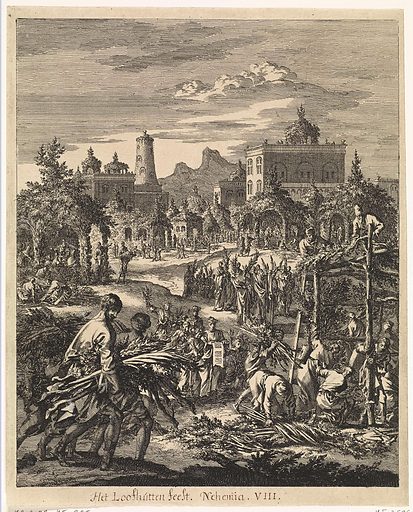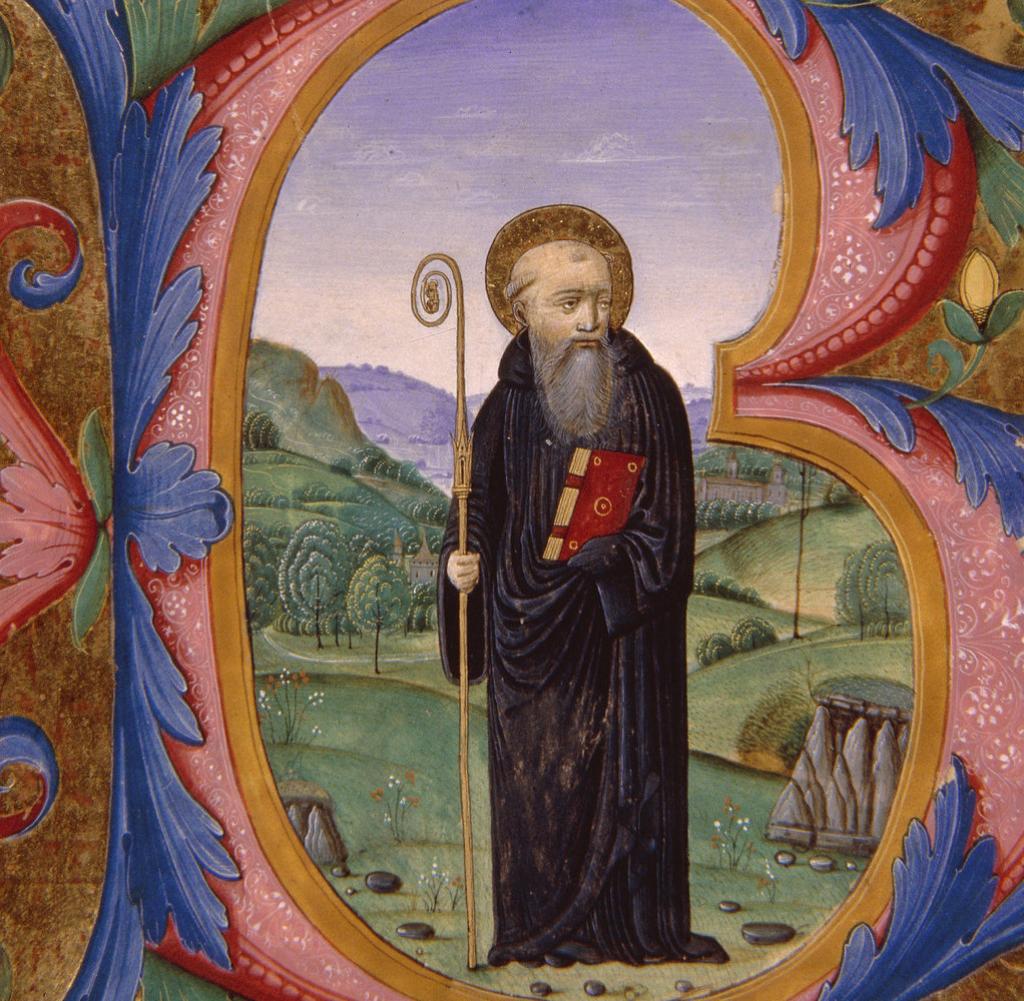Revela ad Dominum viam tuam et spera in eum (VII:5)
2 Feb. 3 June. 3 Oct.
The fifth degree of humility is, not to hide from one’s Abbot any of the evil thoughts that beset one’s heart, or the sins committed in secret, but humbly to confess them. Concerning which the Scripture exhorteth us, saying: “Make known thy way unto the Lord, and hope in Him.” And again: “Confess to the Lord, for He is good, and His mercy endureth for ever.” So also the prophet saith: “I have made known to Thee mine offence, and mine iniquities I have not hidden. I will confess against myself my iniquities to the Lord: and Thou hast forgiven the wickedness of my heart.”
I have yet to meet the monk who has never been assailed by thoughts that push him into restlessness, impurity, vindictiveness, anger, harshness, pride, ambition, covetousness, lust, rebellion, murmuring, and even hatred. There are men who, in the world, thought themselves reasonably virtuous and on their way to holiness. After a season in the cloister, however, they begin to see cracks in the edifice of their virtue. Sometimes panic ensues: “I am not the man I thought I was. Since entering the monastery I have become worse, not better. Here I am struggling with things that never troubled me in the world. What am I to do?” Such experiences are not unusual. The monastery, like the Egyptian desert of old, is a place of spiritual combat. One does not enter the cloister for a life of pious quietude.
Put you on the armour of God, that you may be able to stand against the deceits of the devil. For our wrestling is not against flesh and blood; but against principalities and powers, against the rulers of the world of this darkness, against the spirits of wickedness in the high places. (Ephesians 6:12)
Our Benedictine peace, the famed pax benedictina is hedged about by thorns. It it is not acquired cheaply. It is a thing more precious and more costly than anything the world can offer. Our Lord says, “From the days of John the Baptist until now, the kingdom of heaven suffereth violence, and the violent bear it away” (Matthew 11:12). Abba Longinus said, “Give your blood and receive the Spirit”. By this, he meant, that without being wounded and bloodied in spiritual combat, one cannot claim possession of the fruits of the Holy Ghost.
But the fruit of the Spirit is, charity, joy, peace, patience, benignity, goodness, longanimity, mildness, faith, modesty, continency, chastity. Against such there is no law. And they that are Christ’s, have crucified their flesh, with the vices and concupiscences. (Galatians 5:22–24)
The disclosure of one’s thoughts to the spiritual father is an indispensable part of the monastic strategy for spiritual combat. One begins to lose the battle as soon as one hides from his abbot the “evil thoughts that beset one’s heart and the sins committed in secret.” Hidden thoughts, temptations, struggles, resentments, and fears tend to swell and to increase in malignancy in proportion to one’s unwillingness to disclose them. No sooner are such thoughts and hidden sins disclosed to the spiritual father than the swelling goes out of them and the poison they contain begins to drain out of the soul. Saint Ambrose writes:
A fever which is most difficult to break gives hope of receding when it is brought to the surface: in much the same way, as long as it is hidden, the sickness of sin grows constantly more serious, but if made known in confession, disappears. (Ennar. in Ps. 37)
Saint Fructuosus of Braga says that “the monk ought always to refer all his acts and occasions of sin — thoughts, revelations, illusions, and negligences — to the father” (Reg. monachorum, c. 13). It is a sure sign of pride when a monk keeps his troubling thoughts and temptations to himself. Not only does such a monk run the risk of becoming completely poisoned by this thoughts; he also sinks deeper and deeper into the quicksand of pride.
Certain men, marked by their upbringing, or by the culture in which they were reared, are loathe to open up to another. They prefer to trudge along in solitary misery, not wanting to risk opening up to another. It is remarkable that the same men lose this inhibition after downing a few pints. Then, they begin, and sometimes at great length and with tears, to reveal the thoughts of the heart to whomever happens to be near at hand. The same people who recoil from the confessional will confess innermost secrets, feelings, and fantasies on Facebook and in the other social media. Is this not a manifestation of the need to confide in another, to bare one’s soul? None of these things can offer lasting healing, nor are they channels of divine grace. Quite the opposite!
One of the abbot’s principal tasks is to listen to the temptations, struggles, falls, and even defeats of his sons. If a brother is discouraged, the abbot must comfort him. If he is despondent, the abbot must incite him to hope. If he is despairing, the abbot must show him the inexhaustible mercy of God. If, infected with acedia, a brother is languishing and restless, the abbot raise him to his feet and help him take the first small steps towards the full recovery of what Saint Benedict calls “the good zeal which monks ought to have” (Chapter LXXII). Sometimes, it is enough for the abbot to listen to a brother patiently, pray a decade of the rosary with him, and to send him on his way with a blessing. Often, the abbot will send a brother to spend a quarter of an hour in the presence of the Most Blessed Sacrament, trusting in that word of the Gospel:
Who were come to hear him, and to be healed of their diseases. And they that were troubled with unclean spirits, were cured. And all the multitude sought to touch him, for virtue went out from him, and healed all. (Luke 6:18–19)
In every instance, the abbot must imitate Saint John the Baptist by sending his sons to the Lamb of God who takes away the sins of the world. The abbot is not Christ; he is the friend of the Bridegroom, sending souls to the Christ, the Divine Physician, the Bridegroom, the Lamb.
The next day, John saw Jesus coming to him, and he saith: Behold the Lamb of God, behold him who taketh away the sin of the world. (John 1:29)
The next day again John stood, and two of his disciples. And beholding Jesus walking, he saith: Behold the Lamb of God. And the two disciples heard him speak, and they followed Jesus. And Jesus turning, and seeing them following him, saith to them: What seek you? Who said to him, Rabbi, (which is to say, being interpreted, Master,) where dwellest thou? He saith to them: Come and see. (John 1:35–39)
The wisdom of Saint Benedict shines forth most clearly in this fifth degree of humilty where, quoting the psalm, he says: “Make known thy way unto the Lord, and hope in Him”. At the centre of the fifth degree of humility is an invitation to hope. “My children behold the generations of men: and know ye that no one hath hoped in the Lord, and hath been confounded” (Ecclesiasticus 2:11). Believing this, one will renew often the great cry of one’s profession:
Suscipe me, Domine, secundum eloquium tuum , et vivam; et non confundas me ab expectatione mea. Take Thou me unto Thyself, O Lord, and I shall live. Let me not be confounded in my hope. (Psalm 118:116)


